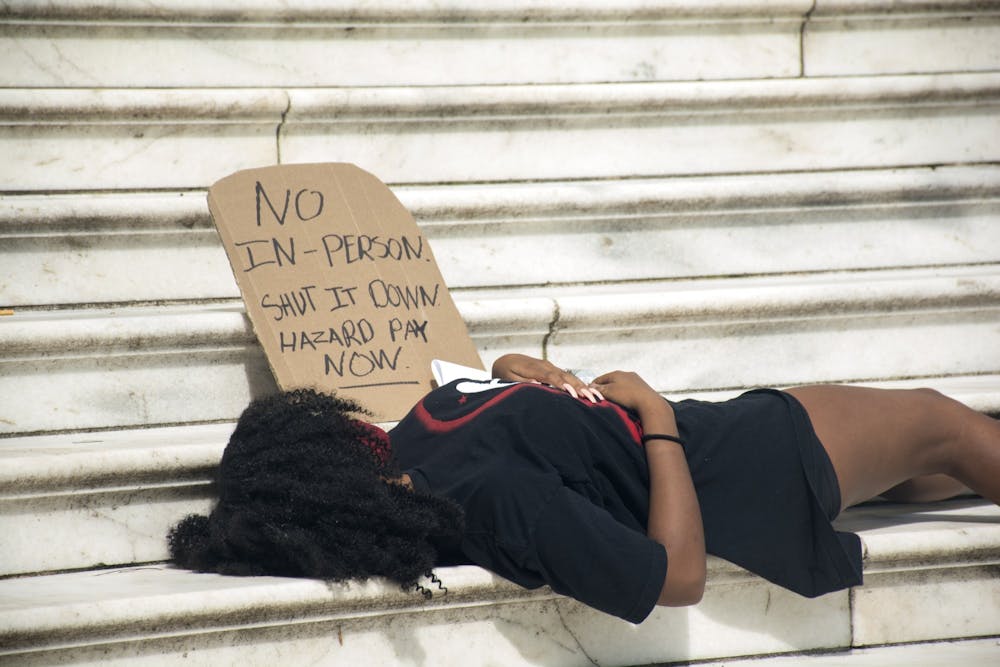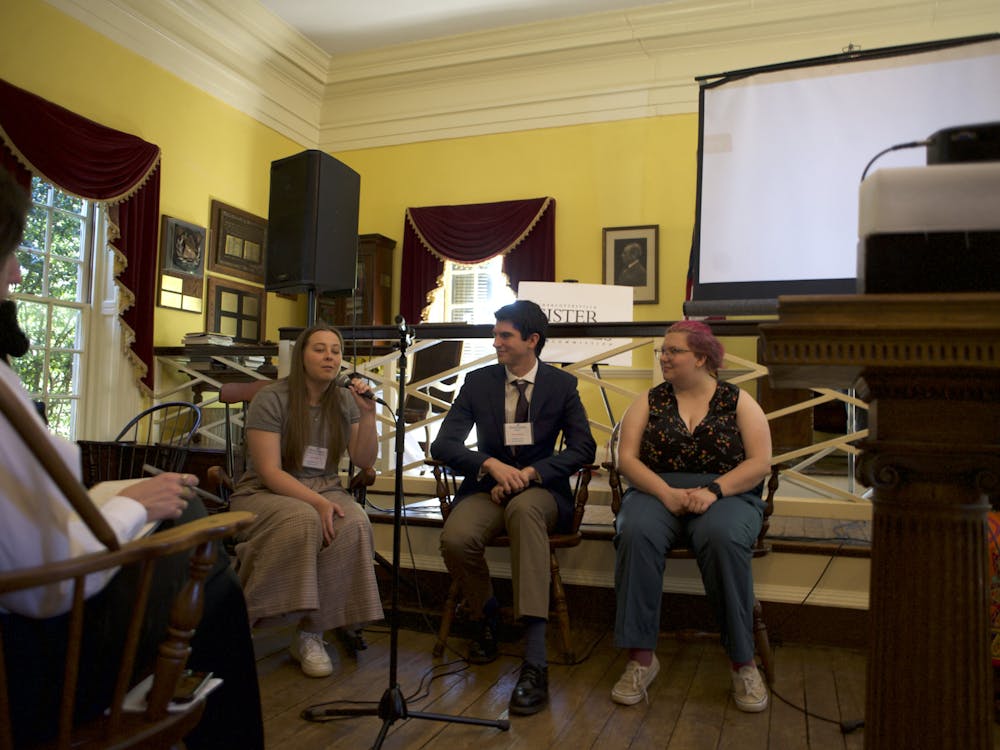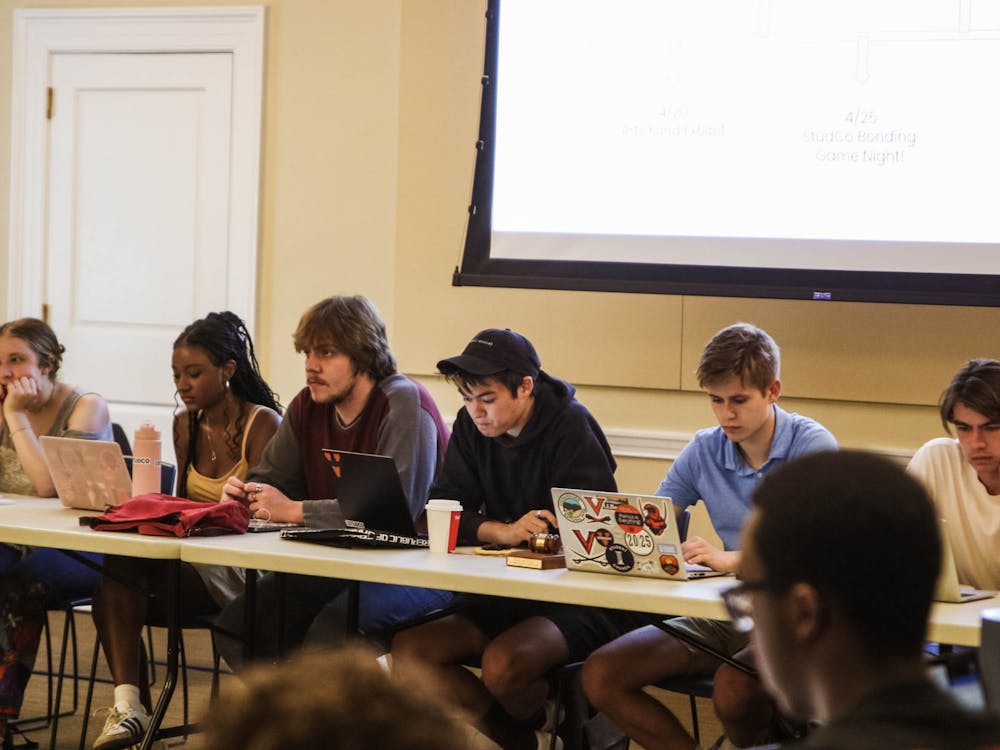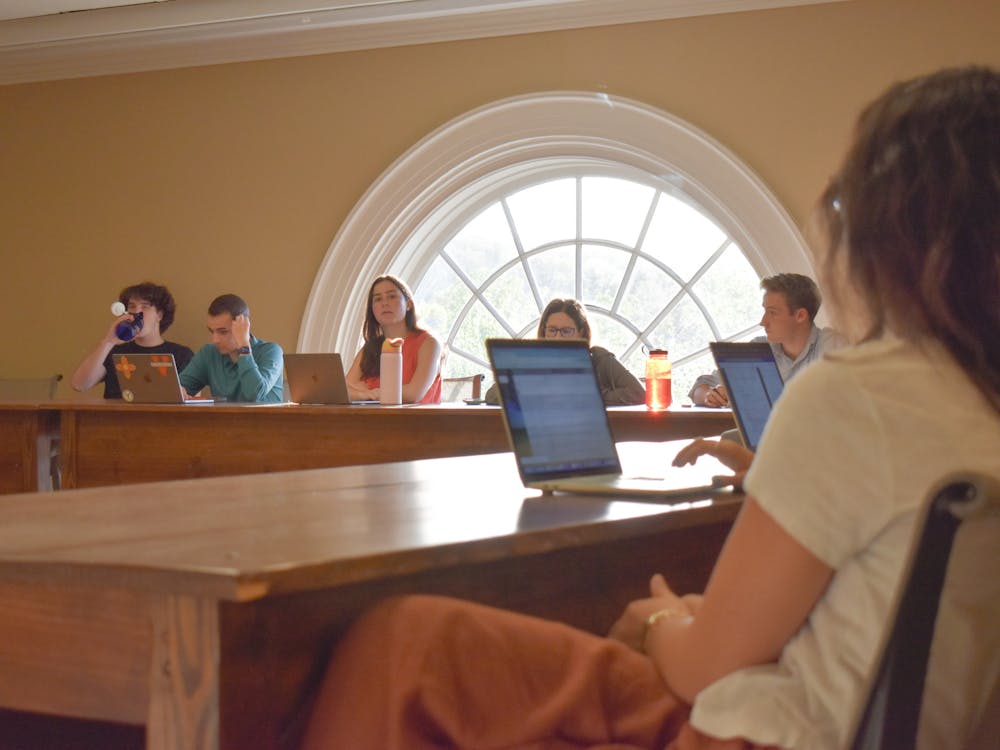As coronavirus cases on Virginia campuses surpassed 2,100 and the number of cases at U.Va. ticked above 300, the Virginia Student Power Network held a virtual press conference Monday morning to express concerns about coronavirus conditions at colleges and universities across the state.
Current students and alumni from George Mason, William and Mary, Virginia Tech, Virginia Commonwealth University and U.Va. shared their stories in the hopes of showing a pattern of imprudent behavior from administrators since the pandemic forced students home in mid-March.
Since then, VSPN members say that schools have not done enough to adequately prepare their campuses for the return of students this fall. Several participants mentioned George Mason, William and Mary and VCU’s contract with Kallaco, a non-FDA approved laboratory provider the three schools used for pre-arrival COVID-19 testing, as evidence of the university system’s questionable decision-making that they view as fueled by a hunger for tuition revenue.
“These are just symptoms of the underlying disease of corporatization and the attrition of our universities as public goods,” said Ibby Han, a 2017 College graduate and VSPN member. “Our universities are not prioritizing the lives of students, workers, faculty and communities. They’re balancing their budgets on the backs of students and their families.”
The organization also noted the “ripple effect” on the surrounding community, including Black and Brown service workers at U.Va. and in the outer Charlottesville community, who are “disproportionately impacted” by the University’s decision to reopen. In response, VSPN members suggested hazard pay for all workers — full-time, contract, part-time and student — increased testing capacity, the purchase of additional personal protective equipment and tuition freezes.
They criticized the substantial funding being put toward longer-term investment, research initiatives, and administrative salaries when people are, as VCU student Taylor Maloney argued, “trying to function off of $8.50 an hour without hazard pay.”
Han worried about selective enforcement of COVID guidelines around the state, especially after Young Democratic Socialists of America at U.Va. allegedly received multiple emails from deans with reminders about restrictions before a die-in protest several weeks ago. VCU has reported similar enforcement policies.
“When VCU students have planned socially distanced rallies calling on the university to close, they’ve enforced their COVID gathering limit,” Han said. “That’s just one example of how schools are picking and choosing when to enforce regulations.”
Sarandon Elliott, a third-year College student and chair of YDSA at U.Va. felt that university presidents had attempted to shift the blame for reopening hiccups from institutions to individual students.
“Universities have been purposefully setting this narrative that all the responsibility and blame is to be put onto students,” Elliott said. “They run campaigns like, ‘wear a mask, do your part, so that we can all stay safe.’ And while yes, some students have been immensely irresponsible, we have to acknowledge the power and influence that our institutions have.”
For schools to reopen responsibly in the spring, representatives of the VSPN said that — at the very least — large, public universities should have the same resources that smaller liberal arts schools do now, including twice weekly testing, mandatory social distancing and strictly enforced policies around residence hall guests.
Currently, the University is expanding testing to mandatory asymptomatic prevalence testing, saliva screening and testing residence hall wastewater.
Kalia Harris, a George Mason graduate and VSPN member, lamented the current state of affairs as preventable and called upon schools to listen to what student activists have to say.
“If universities would have listened to their students and workers in March, we wouldn’t be here today,” Harris said. “What universities and colleges all over the state can do right now is begin to listen and act based on what they’re hearing. Not from their funders, not from their puppet-string folks, but from the folks that hold the power — the students and the workers and the faculty.”





